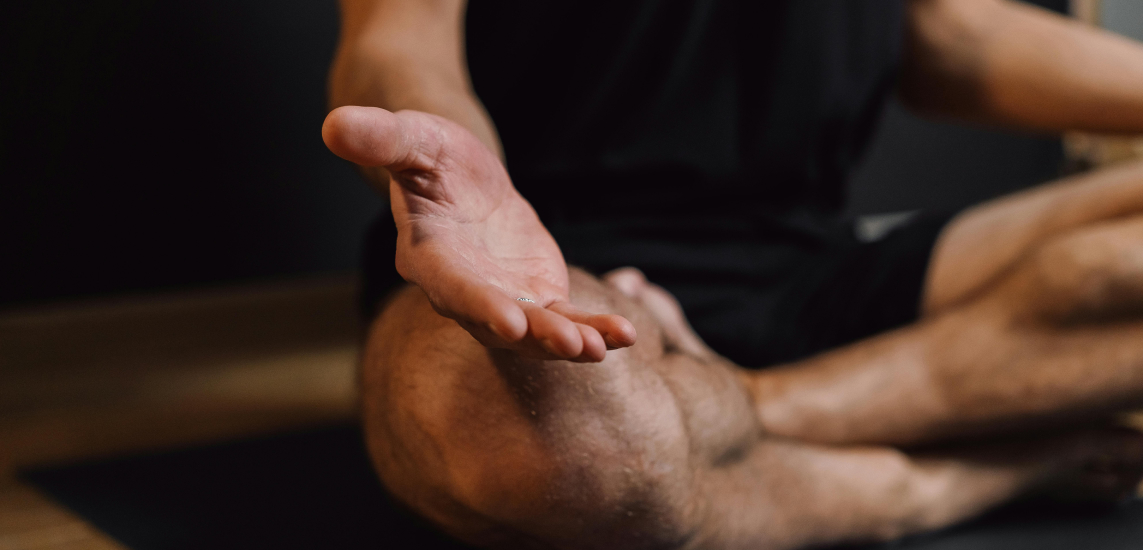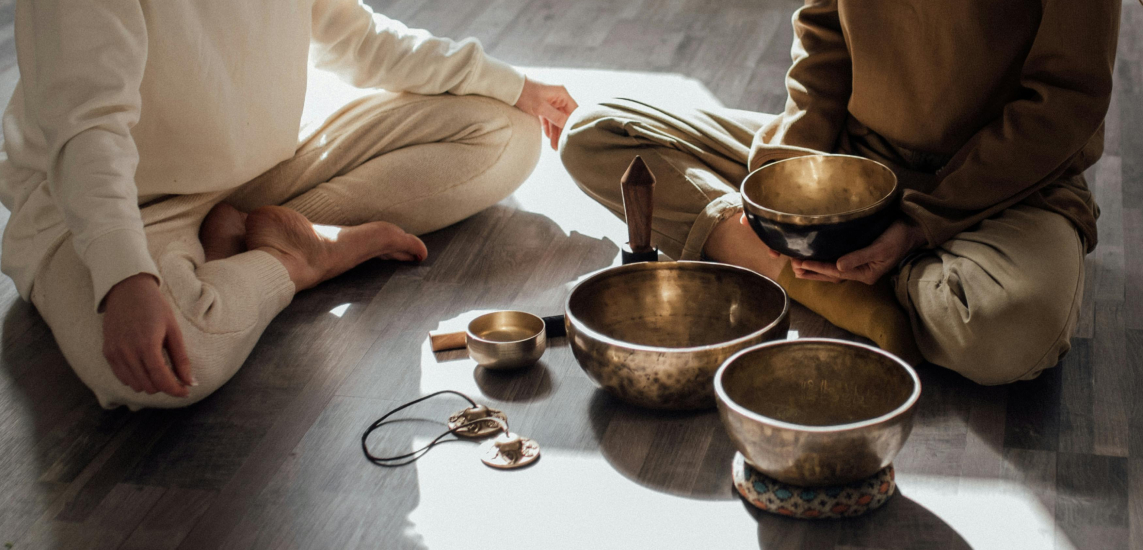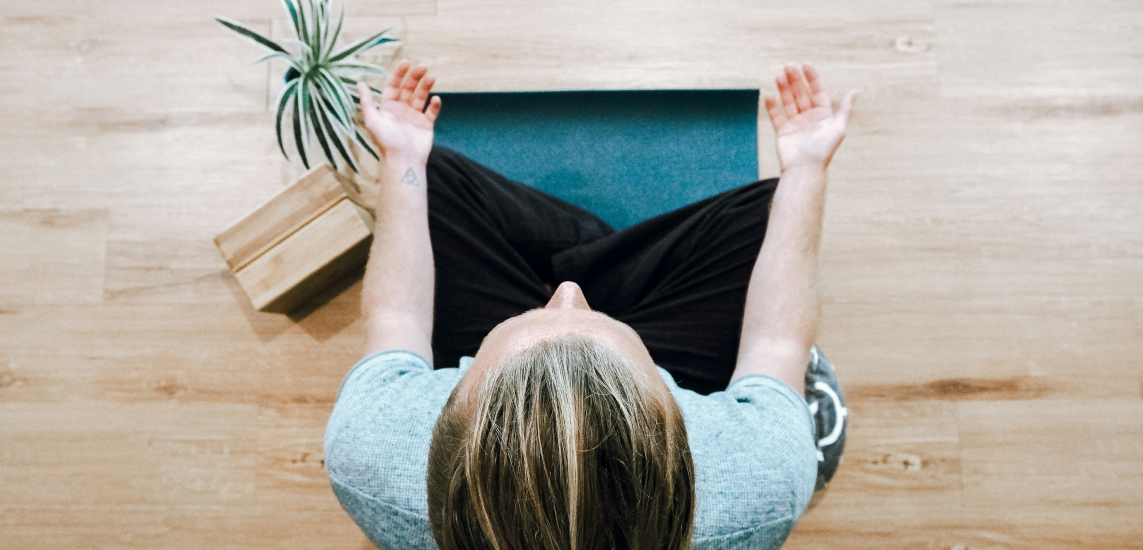An evening routine is an invaluable element for a happy life, whether you’re a night owl or an early bird. Implementing a simple set of practices and guidelines for your evenings helps you fall asleep more easily, enter into vital deep sleep phases with ease, and wake up refreshed.
Getting high-quality sleep is a vital part of maintaining a healthy mind, body and emotional balance. Starting with a simple evening routine is a ticket to the sleep that you need to live a rich life.
Better Sleep Due To A Healthy Evening Routine
Why Is Sleep A Top Priority?
If you struggle to fall or stay asleep or you wake up after a full night’s sleep feeling tired, you’re likely not getting the seven hours of sleep recommended for adults age 18+ by the US Centers for Disease Control and Prevention.
The benefits of getting enough sleep are twofold: it both prevents disease and helps our body restore its cells and tissues. This hinges on our ability to get enough non-REM sleep where our body and brain waves slow down. Giving yourself the gift of sleep through an evening routine is an incredible benefit to longevity and health.
Read more: If you have trouble falling asleep, you might find these tips helpful to break the worry-sleep-cycle.
Dangers Of Not Sleeping
Failing to get enough quality sleep can make us at risk for developing health issues and experiencing negative mood states.
Researchers have explored numerous different effects of lack of sleep on the body. Short-term effects include the ones we know, like drowsiness, sleepiness, irritability, difficulty paying attention, and poor memory.
The U.S. National Institute of Child Health & Human Development provided a summary of recent research on sleep that reports that lack of sleep has major repercussions for how the body functions. Poor sleep puts individuals at higher risk for diabetes and obesity. It can aggravate existing disorders, too, like increasing the amount of pain in an arthritis patient and blood pressure levels in individuals with hypertension.
Read more: Explore the science behind stress dreams that anxiously wake you at night.
Why We Need Enough Sleep
Getting seven hours of quality sleep seems like a no-brainer given the dangers of not enough sleep… Right?
Sleep not only makes us more resistant to disease, but it also provides the body the opportunity to properly recuperate within the two main phases of sleep. They occur at approximately 90-minute intervals, meaning the more sleep you get, the more chance your body has to move through multiple sleep cycles.
The two stages of sleep, REM (Rapid Eye Movement) and non-REM sleep, have different roles within the body. You likely have heard of REM sleep as the time we create dreams.
Of the two phases of sleep, non-REM is more important for long-term health.
It occurs in four stages. The fourth stage is called “deep sleep” and it’s the one that carries the most benefits for the body and cells to recuperate. According to Healthline, these benefits include:
- Increased glucose metabolism in the brain, supporting memory and learning
- Proper hormone production
- Improved blood supply to muscles
- Strengthening of the immune system, tissues, and bones
The tricky part is that the deep sleep stage only lasts 5 – 15% of total time asleep for most adults. Sleeping seven hours a night means an individual may only get 21 – 63 minutes of this restorative sleep phase!
➤ Therefore, ushering yourself to sleep quickly and deeply through an evening routine can be a method to make it easier for your body to enter into the deep sleep stage to receive these benefits.
Creating An Evening Routine
Creating an effective and do-able evening routine is simpler than it seems on the outset. It starts with tuning into your body’s needs and ends with following simple guidelines.
1. Tuning In With Your Circadian Rhythms
The natural place to begin when creating an evening routine is with your body’s Circadian rhythms. This is the body’s internal clock that regulates sleep, alertness, hormone production, body temperature, and organ function.
Everyone’s circadian rhythms are a little different depending on our body’s makeup & our environment. It’s the real-life reason why some folks are night owls and others are early birds.
Overall, keeping in sync with our body’s rhythms of sleeping and waking provides a good starting place for an evening routine. A simple way to start is by paying attention to your feelings of drowsiness when the sun sets. At this time of day, the light hits the neurons in our eyes differently and causes neurons in the brain to respond accordingly, which researchers believe causes our body to begin to wind down for the day.
➤ Keep track of your natural “drowsy” time as an indicator of when it’s best to shut down the work laptop, turn off the TV, or begin to wind down for bed, so you know when to begin your evening routine.
Ultimately, it’s about a bedtime routine that works for your life and your body. Its natural wind-down time is an indicator of when to kickoff your bedtime routine.
Read more: Discover how to engage the relaxation response of your body for regulating stress and winding down.
2. Setting Consistent Bedtimes & Waking Times
Once you know your wind-down time, the next step is to set a consistent bedtime. Experts at the American Heart Association report that adults who set a consistent bedtime sleep better. It’ll help you set a schedule for your evening and family, as well, so everyone’s on board.
➤ Make sure to set your alarm for the next day as part of your evening routine. Your body will become accustomed to waking up at a certain time once it’s used to sleeping at a certain time, but it needs to be trained for it.
Consistent sleep and wake times will help the body learn how to approach sleep so that it enters the deep sleep states faster.
Tune into relaxation mode with these hand-picked guided meditations for your well-deserved evening wind down:
- Evening Ritual Meditation Jeremy Zinzan 7:59
- Time To Unwind Meg James 11:01
- Buddha Evening Meditation Jonathan Lehmann 11:38
- 61 Point Body Scan Zoe Kanat
- The Relaxing Body Scan Shirley McLeod
3. Remove Artificial Light Before Bed
Our brains fall asleep more easily when they produce more melatonin, a hormone whose levels increase in the body when it’s time to head to sleep. It rises when light exposure lessens in our environment. The more melatonin produced, the easier it is to fall asleep and reach deep sleep quicker.
The flip side of this is that artificial lights like bedroom lamps, computers, phones, and TVs suppress melatonin levels in the blood. Researchers discovered that exposure to light before bedtime shortens melatonin production by about ninety minutes! That’s 90 minutes of deep, restful sleep you could get back.
➤ Consider switching LED lightbulbs in the bedroom for non-LED lights at a minimum or changing to candlelight at the later part of the evening. Cutting out screen time for at least an hour before bed is best, says UChicago Medicine.
Other Tips For Your Evening Routine
Now that you’ve set a healthy bedtime routine that’s sustainable, grounded in solid wake and sleep times, and following the important guideline of removing artificial light, consider these additional tips for even better sleep, courtesy of Harvard’s Medical School:
- Avoid alcohol after dinnertime and caffeine after 2 PM
- Keep the bedroom dark, quiet, and cool
- Stick to a habitual order of tasks before bed to trigger your body into a sleep state
Your evening routine will be sure to usher you into dreamland!





-1.jpg)


